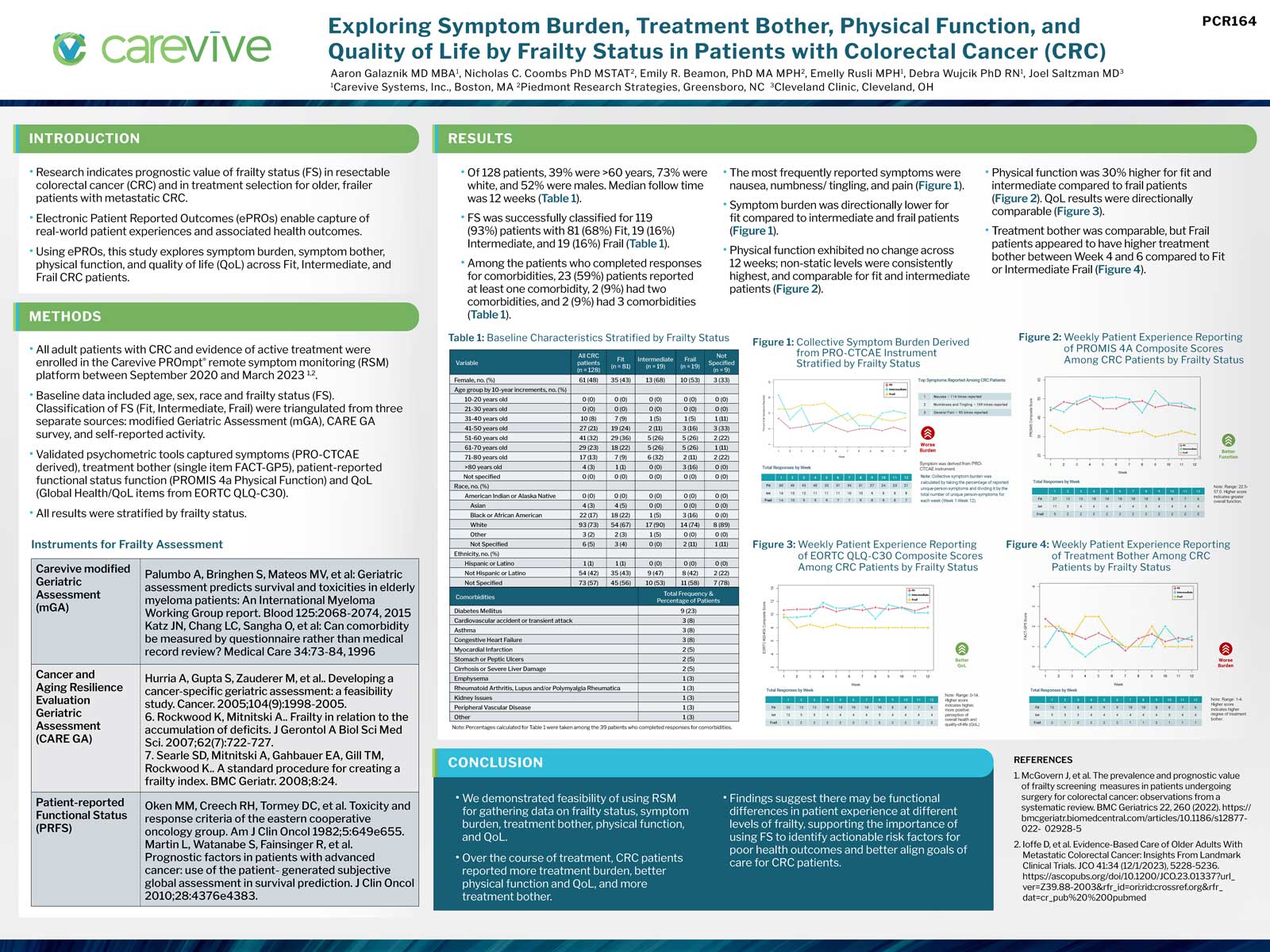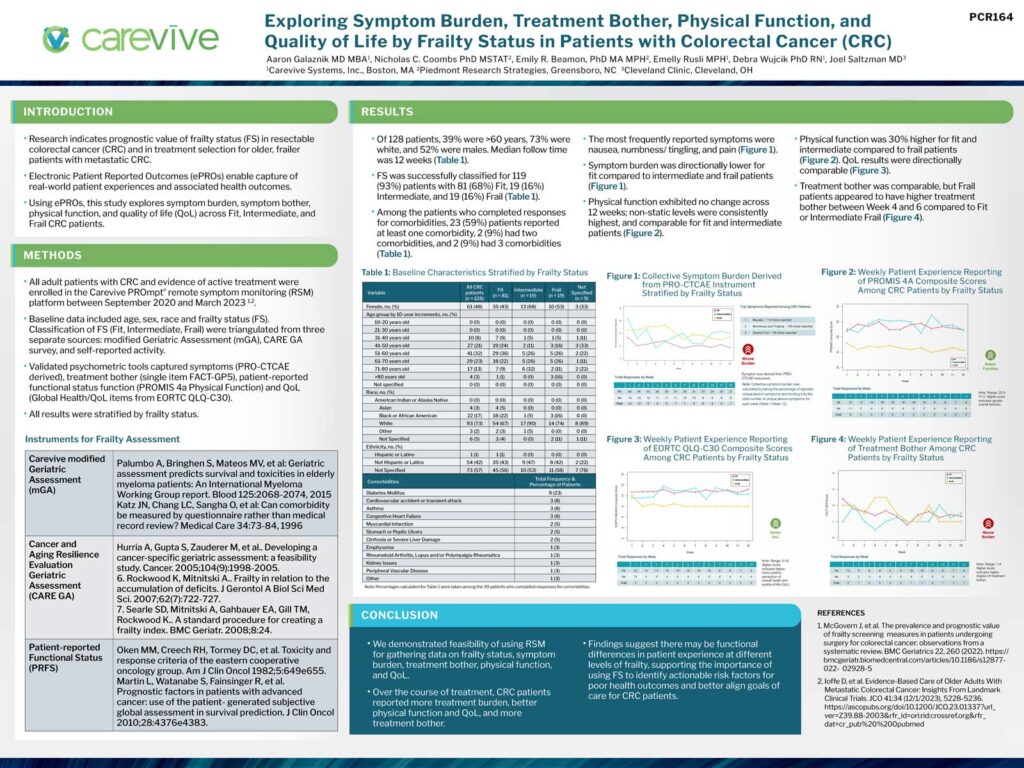
Authors: Aaron Galaznik MD MBA1, Nicholas C. Coombs PhD MSTAT2, Emily R. Beamon, PhD MA MPH2, Emelly Rusli MPH1, Debra Wujcik PhD RN1, Joel Saltzman MD3
1 Carevive Systems, Inc., Boston, MA ,2 Piedmont Research Strategies, Greensboro, NC, 3Cleveland Clinic, Cleveland, OH
Introduction
- Research indicates prognostic value of frailty status (FS) in resectable colorectal cancer (CRC) and in treatment selection for older, frailer patients with metastatic CRC.
- Electronic Patient Reported Outcomes (ePROs) enable capture of real-world patient experiences and associated health outcomes.
- Using ePROs, this study explores symptom burden, symptom bother, physical function, and quality of life (QoL) across Fit, Intermediate, and Frail CRC patients.
Methods
- All adult patients with CRC and evidence of active treatment were enrolled in the Carevive PROmpt® remote symptom monitoring (RSM) platform between September 2020 and March 2023 1,2.
- Baseline data included age, sex, race and frailty status (FS). Classification of FS (Fit, Intermediate, Frail) were triangulated from three separate sources: modified Geriatric Assessment (mGA), CARE GA survey, and self-reported activity.
- Validated psychometric tools captured symptoms (PRO-CTCAE derived), treatment bother (single item FACT-GP5), patient-reported functional status function (PROMIS 4a Physical Function) and QoL (Global Health/QoL items from EORTC QLQ-C30).
- All results were stratified by frailty status.
Conclusion
- We demonstrated feasibility of using RSM for gathering data on frailty status, symptom burden, treatment bother, physical function, and QoL.
- Over the course of treatment, CRC patients reported more treatment burden, better physical function and QoL, and more treatment bother.
- Findings suggest there may be functional differences in patient experience at different levels of frailty, supporting the importance of using FS to identify actionable risk factors for poor health outcomes and better align goals of care for CRC patients.

